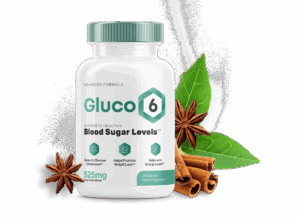Hydration for Overall Health
Staying hydrated is an essential, yet often overlooked, component of maintaining good health. Water is foundational for nearly all bodily functions, providing energy, aiding digestion, and supporting cellular processes. The importance of hydration for overall health extends beyond the fundamental physiological needs and influences cognitive functions, mood, and energy levels. Understanding the benefits of proper hydration and integrating it into our daily routine can significantly enhance our well-being and prevent numerous health issues. This article explores the profound impact hydration has on our health, offering insights into how even minor adjustments in our water intake can lead to substantial improvements in vitality and longevity.
Why Water is Necessary for Life
Water plays an indispensable role in sustaining life, serving as the medium for countless physiological functions that keep our bodies functioning optimally. Temperature regulation is one crucial function. When body temperature rises, sweating occurs. As sweat evaporates, it cools the skin and maintains a stable body temperature, essential for cellular operations.
Water also excels as a transport vehicle. It facilitates the delivery of vital nutrients to cells and carries away metabolic waste products. The blood, predominantly composed of water, circulates oxygen and nutrients to organs and tissues while returning carbon dioxide and other wastes for elimination.
Moreover, water supports waste removal through the kidneys. It aids in filtering toxins and excess substances, expelling them via urine. Insufficient water intake can lead to impaired kidney function and the buildup of waste products.
Dehydration, even in its mildest form, significantly impacts our body’s operations. Studies demonstrate that losing just 1-2% of body water can impair cognitive functions. Symptoms include difficulty concentrating, fatigue, and mood changes. Similarly, physical abilities decline with dehydration, affecting endurance and strength. This can be particularly concerning for those who exercise regularly, as poor hydration levels hinder performance and increase the risk of heat-related illnesses.
For those interested in optimizing their hydration and overall health, integrating nutritious foods alongside adequate water intake can be beneficial. Check out some nutritious breakfast ideas to start your day with both energy and hydration in mind.
By understanding these physiological roles, we can appreciate why maintaining adequate hydration is more than just quenching thirst. It is integral to our health strategy, ensuring our bodies operate at their peak. The next time you reach for a drink, remember that each sip supports numerous critical functions that contribute to a healthier you.
Hydration’s Impact on Mind and Mood
Staying hydrated plays a crucial role in maintaining mental health and emotional well-being. Scientific studies have revealed that adequate water intake can significantly enhance cognitive clarity and memory retention. Research published in The British Journal of Nutrition showed that even mild dehydration can impair mood and cognitive functions. Participants experiencing just 1-2% dehydration reported feeling more anxious and tired than their well-hydrated counterparts.
Furthermore, proper hydration positively impacts memory retention, a vital component of our cognitive toolkit. Findings from the Journal of the American College of Nutrition demonstrated that students who took a water bottle into exams performed better than those who didn’t. Their cognitive processes, including memory recall and response speed, were notably sharper.
Mood stability is another area where hydration plays an indispensable role. Dehydration can elevate stress hormone levels, leading to increased anxiety and irritability. A study found in Nutrition Reviews indicated that individuals who consumed more water daily reported feeling calmer and more content. In contrast, those experiencing dehydration presented with heightened stress levels and mental fatigue.
To maintain optimal mental wellness, focus on practical hydration strategies. Aim for at least 8 cups of water per day, but remember to adjust for activity level and climate. You can also include water-rich foods, like cucumbers and oranges, in your diet, supporting both hydration and nutrition. Keeping a reusable water bottle handy serves as a practical reminder to drink more frequently.
For those interested in learning more about proper hydration within broader healthy eating habits, consider checking out our guide on healthy eating habits to adopt daily. This resource offers valuable insights into creating a nutrient-rich diet that complements your hydration goals.
Hydration’s influence on the mind is profound, enhancing cognitive functions and stabilizing mood. By diligently maintaining your daily water intake, you equip your mind to handle stress better and promote a state of tranquility.
Hydration as a Pillar of Nutrition
Water is a foundational element in our diet and nutrition, playing a crucial role in how we process macro and micronutrients. Adequate hydration is necessary for the transport and absorption of these nutrients, ensuring that the body receives the necessary vitamins, minerals, and energy for optimal function. Without sufficient water intake, our bodies struggle to break down carbohydrates, fats, and proteins into usable forms.
The metabolic interactions between water and nutrients are complex. For instance, water is involved in hydrolysis, a chemical process that breaks down molecules like carbohydrates into glucose. Glucose is then used for energy, contributing to metabolic health and vitality. Additionally, water aids in the digestion of fats by helping to create bile, a digestive fluid necessary for fat emulsification.
Micronutrients, such as vitamins and minerals, also rely on water for mobility throughout the body. Water acts as a solvent, dissolving essential substances so they can be transported in the bloodstream and absorbed by cells. This is particularly important for water-soluble vitamins, like vitamin C and B-complex vitamins, which cannot be stored by the body and therefore need a continuous supply and transport via hydration.
Metabolic health is not only dependent on what we eat but also on maintaining an optimal level of hydration. Proper water intake helps regulate body temperature and maintains the health of cells, like muscle cells, which are crucial for physical fitness. Furthermore, it is essential for kidney function, helping to filter waste and balance bodily fluids.
Implementing a strategy for maintaining adequate hydration can greatly enhance nutritional health. One simple guideline is the “8×8 rule”: consume eight 8-ounce glasses of water daily as a baseline. However, individual water needs can vary based on activity levels and climate. When engaging in exercise or living in hot environments, increased water intake may be necessary to compensate for fluid loss through sweat. To manage hydration effectively, consider pairing water with nutritious meals. For healthy meal planning, you may want to check out nutritious breakfast ideas, which can be a great start to integrating hydration into your daily routine.
Incorporating adequate hydration into your dietary practices isn’t merely a health recommendation; it’s a pivotal component of achieving comprehensive nutrition that supports both body and mind.
Gluco6 Product
Personalizing Your Hydration Strategy
Finding the right hydration balance isn’t about a one-size-fits-all approach; it requires a personalized strategy that aligns with your lifestyle. Begin by considering your specific activity level. If you’re someone who’s constantly on the move, such as an athlete or someone engaging in high-intensity workouts, your water needs will be higher. On the other hand, if your daily routine is more sedentary, your requirements will naturally decrease. Consider integrating mastering high-intensity interval training routines if you fall into the former category.
Climate is another critical factor. Living in a hot or humid environment can lead to increased perspiration and, consequently, a higher need for fluid replenishment. Whereas in cooler climates, while thirst may not feel as strong, maintaining optimal hydration is still crucial.
Moreover, your personal health conditions can affect how much water you need. Medical conditions such as kidney disorders, diabetes, or specific medications can influence your body’s water requirements. Consulting with a healthcare provider for customized advice is highly recommended.
To make sure you are meeting your hydration needs, start by tracking your water intake. There are a variety of apps available that can remind you to drink water, making it easier to establish a routine. Also, pay attention to your body’s signals. Common signs of dehydration include dry mouth, fatigue, and dark-colored urine. By being attentive to these signals, you can proactively manage your hydration levels.
To further personalize your hydration strategy, consider experimenting with your drinking schedule. Some people prefer small sips throughout the day, while others find it beneficial to drink a full glass at regular intervals. Listen to your body and adjust accordingly for the most effective hydration strategy tailored to your unique needs.
Remember, personalization is key to optimizing your hydration strategy for better overall health outcomes. Understanding these factors will empower you to make informed choices, enhancing both your well-being and performance.
Final words Hydration for Overall Health
Recognizing the importance of hydration for overall health is vital. Adequate hydration supports bodily functions, enhances mental clarity, and plays a crucial role in diet and nutrition. By understanding and implementing effective hydration strategies, you can improve your health and quality of life. Explore our website for more insightful health articles, and take simple steps towards a healthier lifestyle today.




